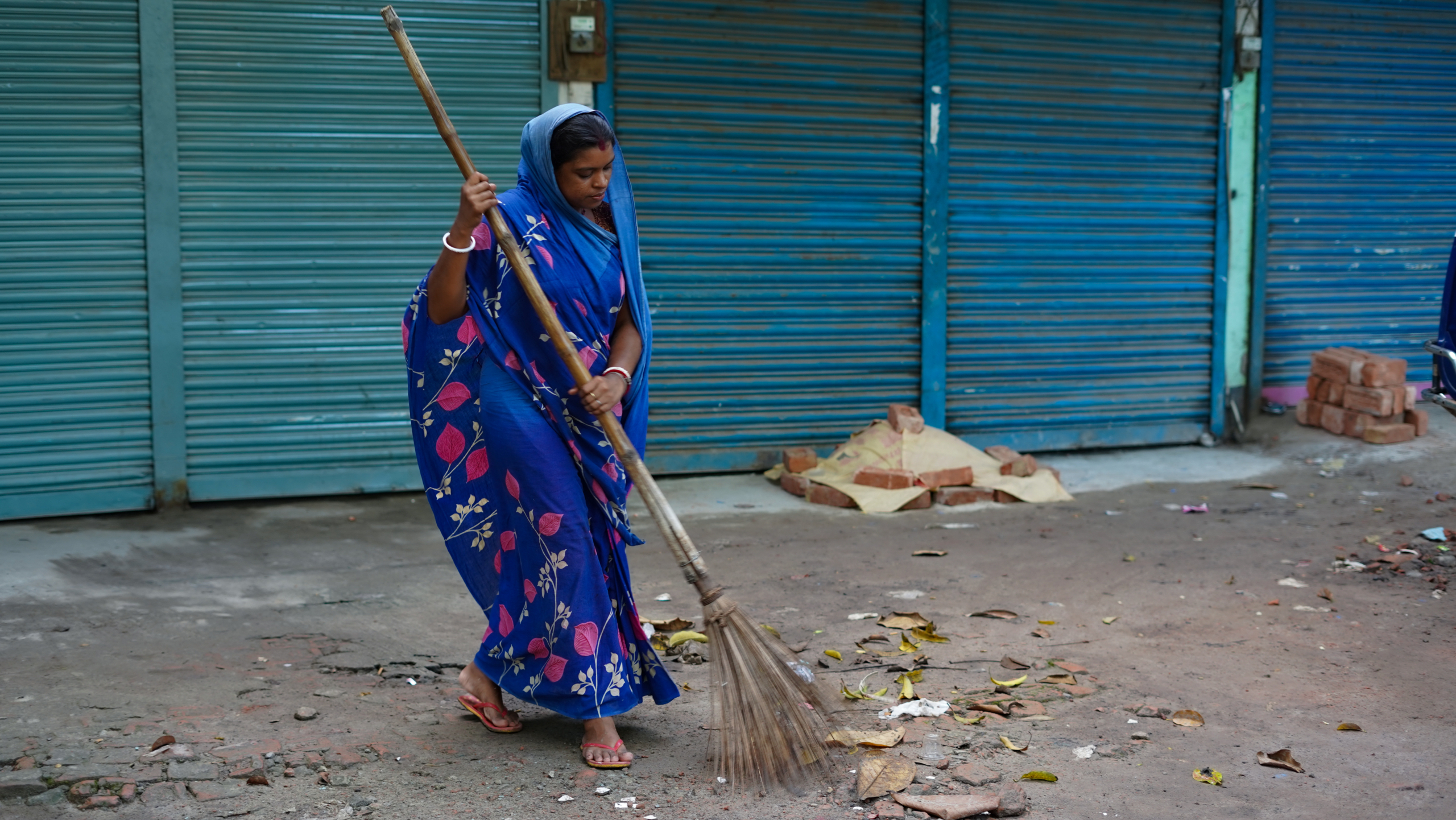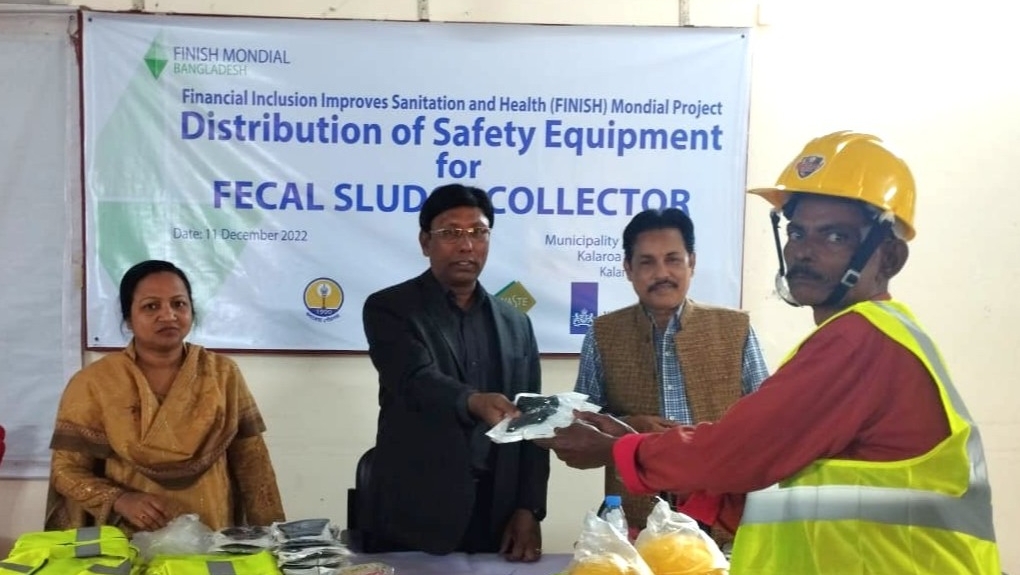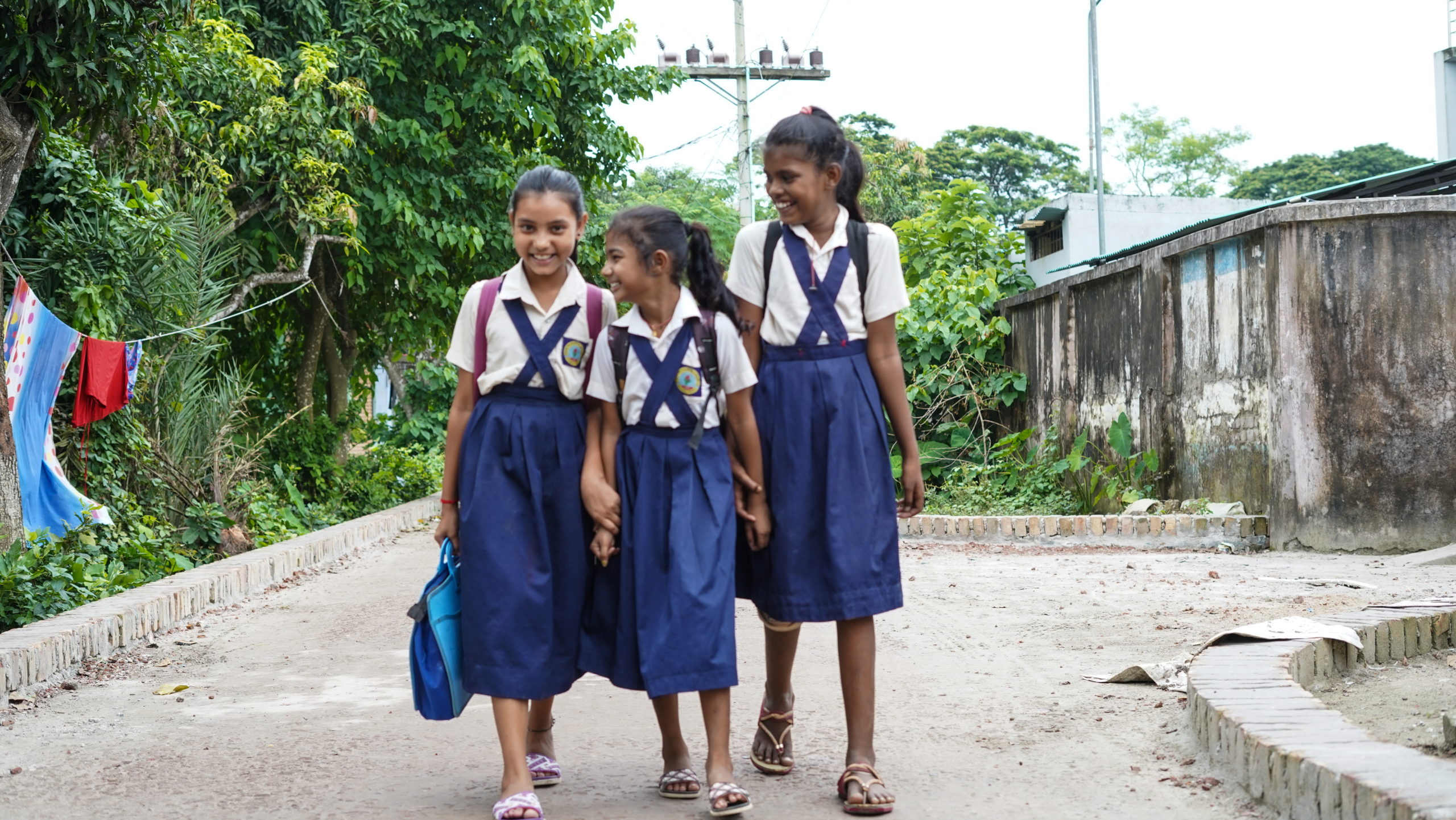
KALAROA, BANGLADESH — Marginalized Sanitation workers—long essential in the sanitation service chain, yet unseen—are now gaining recognition and safer working conditions through a system change effort led by FINISH Mondial Bangladesh in partnership with the Kalaroa Municipality, applying the Diamond Approach.
FINISH Mondial Bangladesh has been engaged along with its local partners in strengthening local systems, improving occupational safety, and fostering dignity in sanitation work to marks a shift toward inclusion and resilience. “We have come a long way—we are now regarded as human, we can talk about our challenges—but there is still a long way to go,” says Anita, a waste worker, reflecting both the progress achieved and the journey that lies ahead.
Formal Recognition Through a Public-Private Partnership Agreement
FINISH Mondial Bangladesh began by addressing exclusion as a systemic problem. It was involved in the development of an association of the waste workers as a process of formalizing them. It also engaged the Mayor through meetings and follow-ups that culminated in a Public-Private Partnership with the waste workers association in Kalaroa. The agreement set clear routes, roles, and remuneration, bringing them into the city’s official service system. On paper, it created structure and accountability; in practice, it delivered dignity and predictable pay.
Professional Training and Safer Work
 Recognition was matched with capability. FINISH Mondial Bangladesh delivered both in-house and on-job technical training and Occupational Health and Safety sessions to the sanitation workers and provided them with Personal Protective Equipment (PPE) moving it from symbolism to standard practice. Trainings emphasized why each safety layer matters, how to refuse unsafe requests, and how to reduce risks so that safety is embedded in daily behavior and policy. The sanitation workers started to adopt safe practices, reducing the risk of severe diseases in their lives.
Recognition was matched with capability. FINISH Mondial Bangladesh delivered both in-house and on-job technical training and Occupational Health and Safety sessions to the sanitation workers and provided them with Personal Protective Equipment (PPE) moving it from symbolism to standard practice. Trainings emphasized why each safety layer matters, how to refuse unsafe requests, and how to reduce risks so that safety is embedded in daily behavior and policy. The sanitation workers started to adopt safe practices, reducing the risk of severe diseases in their lives.
Making the Sanitation Chain Coherent
Safety at the start of the workday means little if waste is not managed safely at the end. FINISH Mondial Bangladesh therefore focused its efforts to strengthen the entire sanitation chain—linking workers to the faecal sludge treatment plant, coordinating disposal routes with municipal staff, and aligning schedules. These connective fixes reduced unplanned and late-night disposals, ensuring that what is collected safely is also discharged safely.
Seats at the Decision-Making Table
Voice was another lever of change. Through advocacy by FINISH Mondial Bangladesh, two waste workers, Gonesh and Lota Bashpore secured seats on the Town Level Coordination Committee, the municipality’s highest decision-making forum. For the first time, sanitation workers’ concerns and proposals entered an arena where budgets are set and municipal activities are planned. In this platform the new representatives are now able to share their views and challenges. The committee’s minutes began to reflect issues that had never been recorded before.
Keeping the School Gate Open
 Discrimination also showed up at school gates. Many waste worker parents experienced rejection or humiliation trying to enroll their children in schools. They were bullied and ignored even if admitted. Through the advocacy of FINISH Mondial Bangladesh with the Mayor and Thana Education Office their children are now enrolled in schools like any other children. The approach was simple: treat inclusion as routine, not a favor. Practical follow-through with head teachers helped shift norms so that parents plan for uniforms and homework rather than brace for refusal.
Discrimination also showed up at school gates. Many waste worker parents experienced rejection or humiliation trying to enroll their children in schools. They were bullied and ignored even if admitted. Through the advocacy of FINISH Mondial Bangladesh with the Mayor and Thana Education Office their children are now enrolled in schools like any other children. The approach was simple: treat inclusion as routine, not a favor. Practical follow-through with head teachers helped shift norms so that parents plan for uniforms and homework rather than brace for refusal.
Visible Results in Daily Life
The changes are tangible. With the Public-Private Partnership, workers now have dependable jobs. With training and safety equipment, they use safer methods and feel confident asking for proper tools. With seats on the Town Level Coordination Committee, grievances reach decision-makers faster and are more likely to result in follow-up actions. At home, the shift from “hoping” to “planning” is visible as children attend school more regularly and parents discuss timetables instead of rumors. “We can now take tea like normal people”- says Gonesh.
What Still Needs Work
Progress is real but incomplete. Stigma has softened, not vanished. The discrimination has reduced, not disappeared. New committee representatives need ongoing support so that their voices are reached effectively and translated reliably into decisions. Schools must ensure fair treatment beyond admission, responding swiftly to bias in classrooms and corridors.
The Road Ahead
FINISH Mondial Bangladesh will track compliance of the Public-Private Partnership; provide coaching and mentoring support to the committee representatives and share outcomes publicly; support through facilitation to promote inclusion of the waste workers; and keep tightening links from pit to plant so every safe collection ends in safe treatment.
Kalaroa’s experience shows what patient, system-wide work can achieve: cleaner streets, safer jobs, and school doors that stay open. By aligning policy, practice, and participation, FINISH Mondial Bangladesh has helped move a community from the margins to the agenda—and kept the microphone where it belongs: in the hands of those who have long been unheard.

